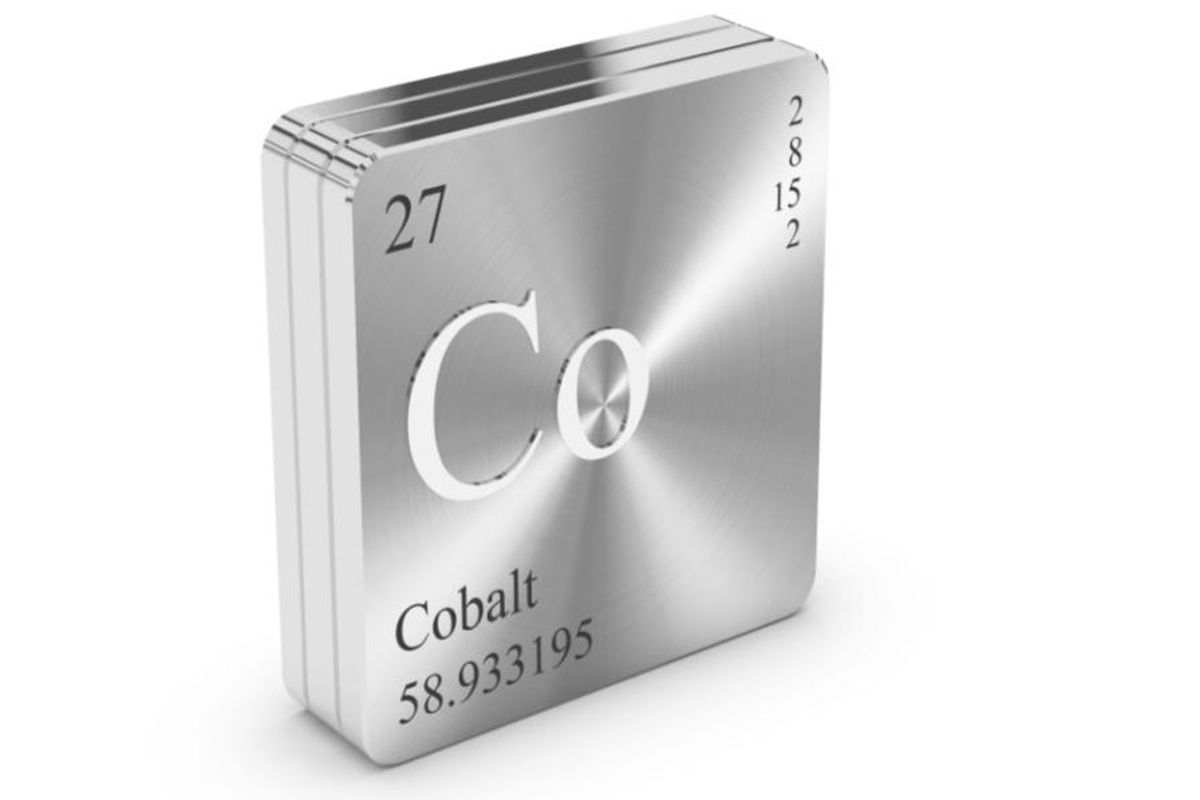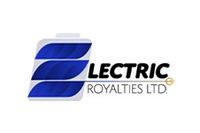Cobalt Market Update: Q2 2022 in Review
What happened to cobalt in Q2 2022? Our cobalt market update outlines key market developments and explores what could happen moving forward.

Click here to read the latest cobalt market update.
Battery metals continue to make headlines as interest in electric vehicles (EVs) keeps surging.
The first three months of 2022 saw strong demand for cobalt, which supported higher prices, with cobalt stocks also seeing year-to-date gains. However, prices cooled down in Q2 as various factors hit the market.
Read on to learn what happened in the cobalt market in the second quarter, including the main supply and demand dynamics and what market participants are expecting for the rest of the year.
Cobalt market update: Price performance
Last year saw cobalt prices double on the back of strong demand from the EV sector, which surpassed smartphones as the top demand driver for the first time ever. Prices for the commodity stabilized in the first three months of 2022, but took a breather in the second quarter.
“Price dynamics shifted considerably in Q2 as Shanghai experienced a long COVID-19 lockdown, and battery demand growth in China softened,” Harry Fisher of CRU Group told the Investing News Network (INN).
Chinese cobalt metal prices had fallen from the equivalent of around US$40 per pound to US$25 by the end of the three month period, according to CRU data.
“European prices only fell to around US$35 over the same period as Chinese demand suffered more considerably due to the lockdowns, and non-battery European demand continued to recover,” Fisher said. “That being said, European prices have fallen further in early July to the low US$30s as the disconnect with Chinese prices narrows.”
Speaking with INN about the price pullback seen in the second quarter, Cameron Hughes of Benchmark Mineral Intelligence said that cobalt sulfate prices initially led the retreat; he noted that the impact of China's COVID-19 restrictions was felt sharply across the country's domestic battery supply chain in early April.
“The downturn was later felt across the entire cobalt complex as metal prices and hydroxide payables recorded similar declines in May, with all three grades continuing to fall throughout the remainder of the quarter,” he said.
Once the correction began, it became clear that prices had substantial downside potential. That's because Chinese prices had been trading at much lower levels than the international market in recent months, Hughes said.
“The international metal price is likely to continue to fall until the two prices reach a degree of parity,” he explained to INN. “However, this is unlikely to happen until downstream demand from the EV battery industry returns following the Chinese lockdowns.”
Cobalt market update: Supply and demand
Demand from the EV sector was stronger than many had expected in 2021, but Chinese lockdowns paired with macroeconomic factors impacted the space in the second quarter.
Even so, new energy vehicle sales have rebounded quickly in China, rising 50 percent month-on-month in May and 33 percent month-on-month in June. In fact, June sales hit a new monthly record of 596,000 units, as per CRU data.
“Despite a lengthy lockdown in Shanghai, this shows that EV and battery demand is still very strong in China and will continue to grow quickly through 2022,” Fisher said. “That being said, cobalt's demand recovery (and other battery metals) is lagging the EV market while consumers work through their stocks. So it will likely take longer for spot activity to recover and support prices.”
Lithium-cobalt-oxide (LCO) cathode demand for portable electronic applications has also been weaker than expected due to Chinese lockdown measures. Cobalt oxide demand was down by around 60 percent month-on-month in May, and LCO cathode production was down 20 percent year-on-year, CRU data shows.
“This will recover, but likely more slowly than the EV sector due to a lull following strong electronics demand during the peak of the pandemic, as well as a more steady growth rate for 5G mobile phones,” Fisher said.
Benchmark Mineral Intelligence is also forecasting that demand for LCO batteries in consumer electronics will decline between 20 and 30 percent year-on-year, although the next couple of months will be active.
“August to September tends to be the ‘hot season’ for LCO demand as major consumer electronics producers, such as Apple (NASDAQ:AAPL) and Samsung (KRX:005930), release new products in October,” Hughes said.
In other cobalt demand segments, non-battery demand in Europe and the US continues to improve, which has buoyed prices slightly during the Chinese market volatility.
“Aerospace demand for cobalt-containing superalloys is also consistently rising as travel begins to normalize — this will continue as flight travel will take more time to recover to pre-COVID levels,” Fisher said.
Looking over to supply, last year cobalt mine output rose 12 percent year-on-year to 160,000 metric tons (MT) after falling in 2020. The Democratic Republic of Congo (DRC) remained the top producer, accounting for 74 percent of global output and 87 percent of annual growth.
In 2022, CRU forecasts that mined supply will rise by over 42,000 MT, up 26 percent year-on-year. “This will mean that the market should certainly be more balanced than in 2021, when a significant deficit developed,” Fisher said.
Hughes echoed this sentiment, saying the cobalt market is projected to be well balanced in 2022 as the ramp-up of new and existing projects in the DRC and Indonesia increases supply by 17 percent year-on-year.
But logistics issues continue to impact the cobalt supply chain. The DRC's cobalt exports to China were down 2.8 percent month-over-month in May as flooding damage since mid-April has reduced road and rail access to the Port of Durban in South Africa, the world’s largest export port for cobalt.
“With infrastructure challenges overlayed on tight truck supply, we expect continued weakness in seaborne volumes in June from these delays,” S&P Global Commodity Insights Senior Analyst Alice Yu said in a report.
There are few signs of improvement with these issues, and some in the market anticipate they will worsen in Q3.
“Consequently, we may see regional deficits emerge despite strong hydroxide production as material is delayed in reaching consumers,” Hughes said.
Furthermore, logistics issues have been exacerbated by the war in Ukraine and bottlenecks due to Chinese restrictions. “Supply chain constraints are unlikely to recover substantially until at least next year, which will slow exports of additional volumes from the DRC in particular,” Fisher said.
Cobalt market update: What’s ahead?
Although the summer months are generally slow for demand, seasonal factors are not impacting the cobalt space as much as weaker demand from China, with prices falling by close to 40 percent in the second quarter.
“But price falls are not expected to be as severe in Q3 — the price decline has slowed since late June, which also supports this,” Fisher said.
With long-term demand for EVs remaining firm, cobalt demand from the industry is expected to return.
“As such, this is expected to fuel upward momentum for prices towards the end of Q3 and into Q4,” Hughes said.
As COVID-19 restrictions ease in China, the economy — and cobalt demand — is expected to recover to the previous trend through August and September.
“Prices are likely to plateau once demand starts to pick up more markedly, and then possibly rise again later in the quarter or in Q4,” Fisher said. “This is a minor bump in the road in the battery demand growth story — the end-use market is still growing rapidly.”
In contrast, S&P Global Commodity Insights expects the London Metal Exchange cobalt price to continue trending down, narrowing the differential with the Chinese price. “Reviving demand in China and weak seaborne and refined supply will nonetheless help the Chinese cobalt price decline taper off,” Yu said in a report.
Despite some signs of recovery in China, it is important to keep an eye on how containment measures related to COVID-19 evolve. “A large-scale, prolonged lockdown is unlikely, but any restrictions could slow demand growth and delay the battery market recovery,” Fisher commented to INN.
Another catalyst to watch out for is the dispute between the DRC government and CMOC Group’s Tenke Fungurume operation, which accounted for roughly 10 percent of cobalt production in 2022.
“There have been reports that exports from the mine have been halted until late July … an extended disruption could have serious implications to the supply chain,” Hughes said.
Don’t forget to follow us @INN_Resource for real-time news updates!
Securities Disclosure: I, Priscila Barrera, hold no direct investment interest in any company mentioned in this article.
Editorial Disclosure: The Investing News Network does not guarantee the accuracy or thoroughness of the information reported in the interviews it conducts. The opinions expressed in these interviews do not reflect the opinions of the Investing News Network and do not constitute investment advice. All readers are encouraged to perform their own due diligence.


